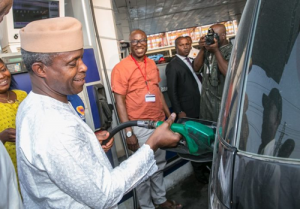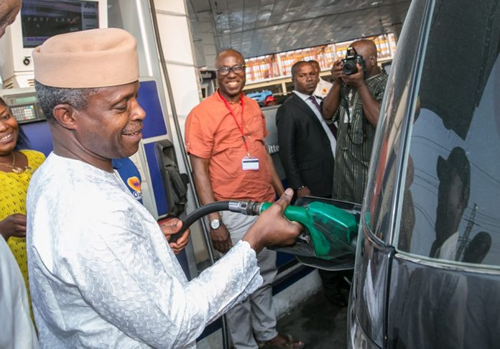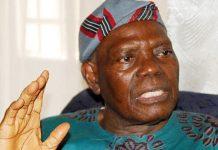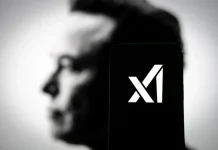Nigerians were told on Sunday that if not for N26 subsidy, they will be paying more than N171, which is the landing cost, for a litre of petrol.
The Group Managing Director of the Nigerian National Petroleum Corporation (NNPC), Maikanti Baru, who disclosed this, said, for now, the Federal Government has no intention of increasing the cost of a litre of petrol.
On the volume of products available for supply, the NNPC GMD informed that 13 vessels laden with over 650 million litres of products were currently discharging their contents at the sea port, while additional vessels have being lined up to berth early January, 2018.
Baru said 814 million litres of petrol were currently being injected into the system to guarantee nationwide elimination of fuel queues before the end of the year.

Representatives of DPR, PEF and PPPRA, at the briefing, registered their agencies’ resolve to work with the NNPC to restore sanity in the supply and distribution of petroleum products.
Baru expressed empathy and strong solidarity with members of the public over the lingering challenge in accessing petroleum products across the country, just as he reeled out multiple measures to end the unfortunate situation before the end of the year.
He also told journalists that measures were already in place to bolster the current fuel supply and eliminate the extraneous factors that have led to the persistent petrol queues.
He said within the last two weeks, the national truck out capacity had been jerked up to an average of 1,500 trucks, translating to 52 million litres per day, which is much higher than the normal consumption of 850 trucks per day across the various depots in the country.
Also, the Corporation has emplaced a 24-hour loading and sales operations in all depots and NNPC Mega Stations across the country, while marketers have been instructed to do same.
To ensure effective products penetration across the length and breadth of the country, Baru said the Corporation had activated the Fuel War Room comprising of team members from the NNPC, DPR, PPPRA and PEF, with support from security agencies.



























